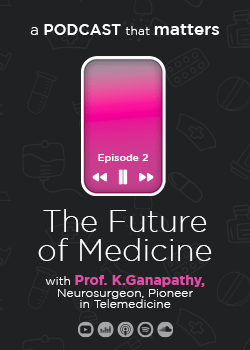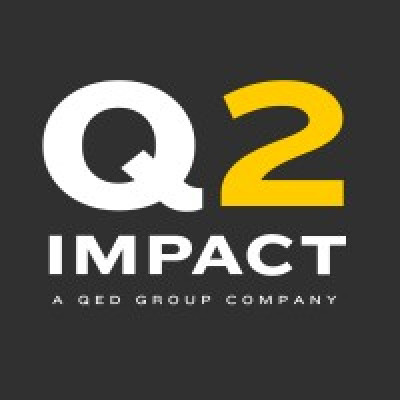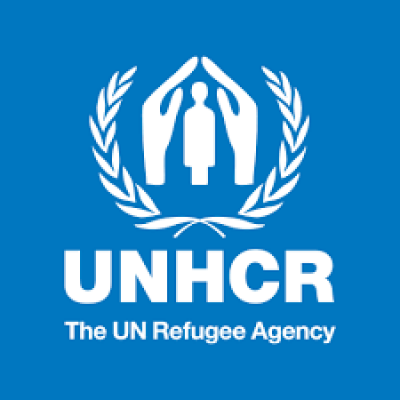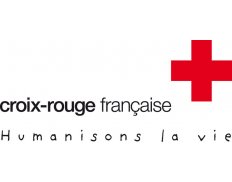Details
Description
Background
UN Women’s Regional Office for the Arab States (ROAS) has recently adopted its new Strategic Note (2022-25). Our vision is to achieve gender equality and the empowerment of all women and girls and the full enjoyment of their human rights in the Arab States, propelling economic prosperity and sustainable development for all. Our goal is to accelerate achievements for the region's largest possible numbers of women and girls, including the most vulnerable, in the next 4 years. To accomplish this, we work with our partners and offices across 17 countries in the region to implement targeted programmes that support women’s economic empowerment, women’s leadership and participation, women, peace and security, and humanitarian issues, as well as ending violence against women. Following its admittance to the IASC in 2022, and in line with this triple mandate, UN Women leads and coordinates the United Nations system’s efforts to ensure that the commitments to gender equality and gender mainstreaming translate into action throughout the humanitarian programming cycle.
UN Women’s Regional Office for the Arab States (based in Cairo, Egypt) works across the humanitarian and refugee response in the Arab States to ensure gender-transformative humanitarian action. UN Women ROAS works with national and international stakeholders to address gender inequalities and strengthen women’s empowerment in humanitarian response, in line with the UN Women’s Humanitarian Strategy key objectives:
- Increase Gender Accountability in the Coordination and the Implementation of the Humanitarian Response;
- Strengthen Comprehensive Protection and Livelihood support for Crisis Affected Women and Girls;
- Advance Women´s Voices and Leadership in Humanitarian and Crisis Response and Recovery.
Reporting to the WPS-HA Advisor, the Crisis Response Specialist will oversee the development of Humanitarian programmes, provide first-line supervision to the WPS-HA multi-country regional programmes and personnel, and provide capacity building to Country Offices (CO) and Cluster Country Offices (CCO), establish and strengthen partnerships, and develop relevant knowledge products on Crisis Response.
Duties and Responsibilities
Oversee the development of programmes on Humanitarian to Country Office/ Cluster Country Office/ Programme Presence teams
- Oversee the development of regional programme documents on humanitarian action;
- Provide technical inputs to programme proposals from country offices;
- Provide advice on contextualizing/ localizing programme documents, country strategies, and knowledge products;
- Coordinate proper monitoring and reporting for humanitarian action in collaboration with programme teams;
- Manage ongoing multi-country regional programmes for WPS-HA.
Provide technical and capacity-building support to Country Office/ Cluster Country Office/Programme Presence teams and partners
- Provide substantive technical and policy support to the country office, cluster-country office programme presence programme; teams in developing and strengthening projects/ programmes;
- Develop, implement, and monitor capacity-building initiatives;
- Provide technical support to partners on the implementation of humanitarian action;
- Provide technical policy advice to programme/ project managers/ specialists in the CO, MCOs, programme presence countries.
Establish and strengthen strategic partnerships with stakeholders, regional/ international actors and development partners
- Build and maintain alliances and strategic partnerships for the advancement of humanitarian action;
- Build and maintain close liaisons with relevant donors and other actors supporting efforts toward humanitarian action;
- Produce periodic updates and briefs on regional/country development situations to be used by stakeholders, CO and HQ;
- Maintain close contact with relevant staff in UN Women HQ.
Manage the resource mobilization strategy for humanitarian action in the region
- Participate in the implementation, monitoring, and periodic updating of the resource mobilization strategy for humanitarian action in the region;
- Provide technical support to field-based presences in the region in mobilizing resources for the implementation of humanitarian action;
- Research and analyze information on donors; prepare substantive briefs on possible areas of cooperation.
Lead the design of humanitarian action in the region and the development of relevant knowledge products
- Provide policy recommendations and guidance to strategic planning and positioning on humanitarian action;
- Research, develop, and present analytical reports, research papers, briefing notes, background papers, summaries, correspondence, and knowledge products on Crisis Response;
- Identify promising practices, technical expertise, and strategic opportunities in Crisis Response.
Oversee the advocacy of humanitarian action through inter-agency coordination
- Work closely with and provide advice to regional/ national bodies and interagency groups that influence national policies related to humanitarian action and where necessary represent UN Women;
- Lead UN Women’s role in the regional GiHA Working Group and GBV AoR;
- Lead specific efforts in mainstreaming gender and protection in disaster preparedness, response and recovery efforts of other clusters and relevant working groups, including inclusion and participation of under-represented groups in accordance with Commitments on Accountability to Affected Populations;
- Advocate for the engagement and participation of local organizations and civil society networks in humanitarian coordination mechanisms.
Manage advocacy and communication of humanitarian action
- During the emergency response, develop and implement communication and advocacy messages and strategies on key gender and protection concerns;
- Develop information, education, and communication (IEC) materials, press releases, situation reports, and alerts and contribute gender and protection-related inputs to documents prepared by the Office for the Coordination of Humanitarian Affairs (OCHA).
Oversee knowledge building and sharing for humanitarian action
- Identify and disseminate lessons learned and good practices in collaboration with country offices;
- Ensure technical skills and knowledge are shared within and among MCO/ COs.
Key Performance Indicators
- Timely and quality technical advice and support
- Leadership in the area of expertise in the region
- Quality reports and other strategic documents drafted and submitted in a timely manner
- Strong relationships with various partners and stakeholders
- UN Women is well represented in important meetings on topics related to expertise
- Contributions to resource mobilization
- Timely and quality knowledge products
Competencies
Core Values:
- Respect for Diversity;
- Integrity;
- Professionalism.
Core Competencies:
- Awareness and Sensitivity Regarding Gender Issues;
- Accountability;
- Creative Problem Solving;
- Effective Communication;
- Inclusive Collaboration;
- Stakeholder Engagement;
- Leading by Example.
Please visit this link for more information on UN Women’s Core Values and Competencies: https://www.unwomen.org/sites/default/files/Headquarters/Attachments/Sections/About%20Us/Employment/UN-Women-values-and-competencies-framework-en.pdf
Functional Competencies
- Substantive knowledge and experience related to current policies and practices in the fields of gender equality, protection and humanitarian action, including humanitarian coordination;
- Strong knowledge of the region;
- Excellent networking skills;
- Ability to interact with donors, identify and analyze trends, opportunities, and threats to fundraising;
- Ability to perform qualitative and quantitative policy research;
- Ability to advocate and provide policy advice;
- Excellent analytical skills;
- Ability to write policy papers, speeches, and briefings;
- Strong knowledge of programme development, implementation, results-based management, and reporting.
Required Skills and Experience
Education and certification:
- Master’s degree or equivalent in human rights, gender, international relations, international development, international law, or other social science fields is required.
- A first-level university degree in combination with two additional years of qualifying experience may be accepted in lieu of the advanced university degree.
- A project/programme management certification (such as PMP®, PRINCE2®, or MSP®) would be an added advantage.
Experience:
- At least 7 years of progressively responsible experience in designing and managing humanitarian programmes, with a particular focus on gender and protection in emergencies;
- Substantive and technical experience in inter-agency coordination, preferably protection cluster coordination, and/or ProCap/GenCap in a natural disaster setting;
- Experience in policy analysis and strategic planning;
- Experience working with, and building partnerships with governments, donors, and civil society organizations internationally and in the field;
- Experience working with the UN is an asset;
- Experience working in the region is an asset.
?Language Requirements:
- Fluency in English is required;
- Knowledge of another UN official working language, specifically Arabic, is an asset;
Application Information:
- All applications must include (as an attachment) the completed UN Women Personal History form (P-11) which can be downloaded from http://www.unwomen.org/about-us/employment;
- Kindly note that the system will only allow one attachment. Applications without the completed UN Women P-11 form will be treated as incomplete and will not be considered for further assessment;
- UN Women will only be able to respond to those applications in which there is further interest.
Note:
In July 2010, the United Nations General Assembly created UN Women, the United Nations Entity for Gender Equality, and the Empowerment of Women. The creation of UN Women came about as part of the UN reform agenda, bringing together resources and mandates for greater impact. It merges and builds on the important work of four previously distinct parts of the UN system (DAW, OSAGI, INSTRAW, and UNIFEM), which focused exclusively on gender equality and women's empowerment.
At UN Women, we are committed to creating a diverse and inclusive environment of mutual respect. UN Women recruits, employs, trains, compensates, and promotes regardless of race, religion, color, sex, gender identity, sexual orientation, age, ability, national origin, or any other basis covered by appropriate law. All employment is decided on the basis of qualifications, competence, integrity and organizational need.
If you need any reasonable accommodation to support your participation in the recruitment and selection process, please include this information in your application.
UN Women has a zero-tolerance policy on conduct that is incompatible with the aims and objectives of the United Nations and UN Women, including sexual exploitation and abuse, sexual harassment, abuse of authority and discrimination. All selected candidates will be expected to adhere to UN Women’s policies and procedures and the standards of conduct expected of UN Women personnel and will therefore undergo rigorous reference and background checks. (Background checks will include the verification of academic credential(s) and employment history. Selected candidates may be required to provide additional information to conduct a background check).




